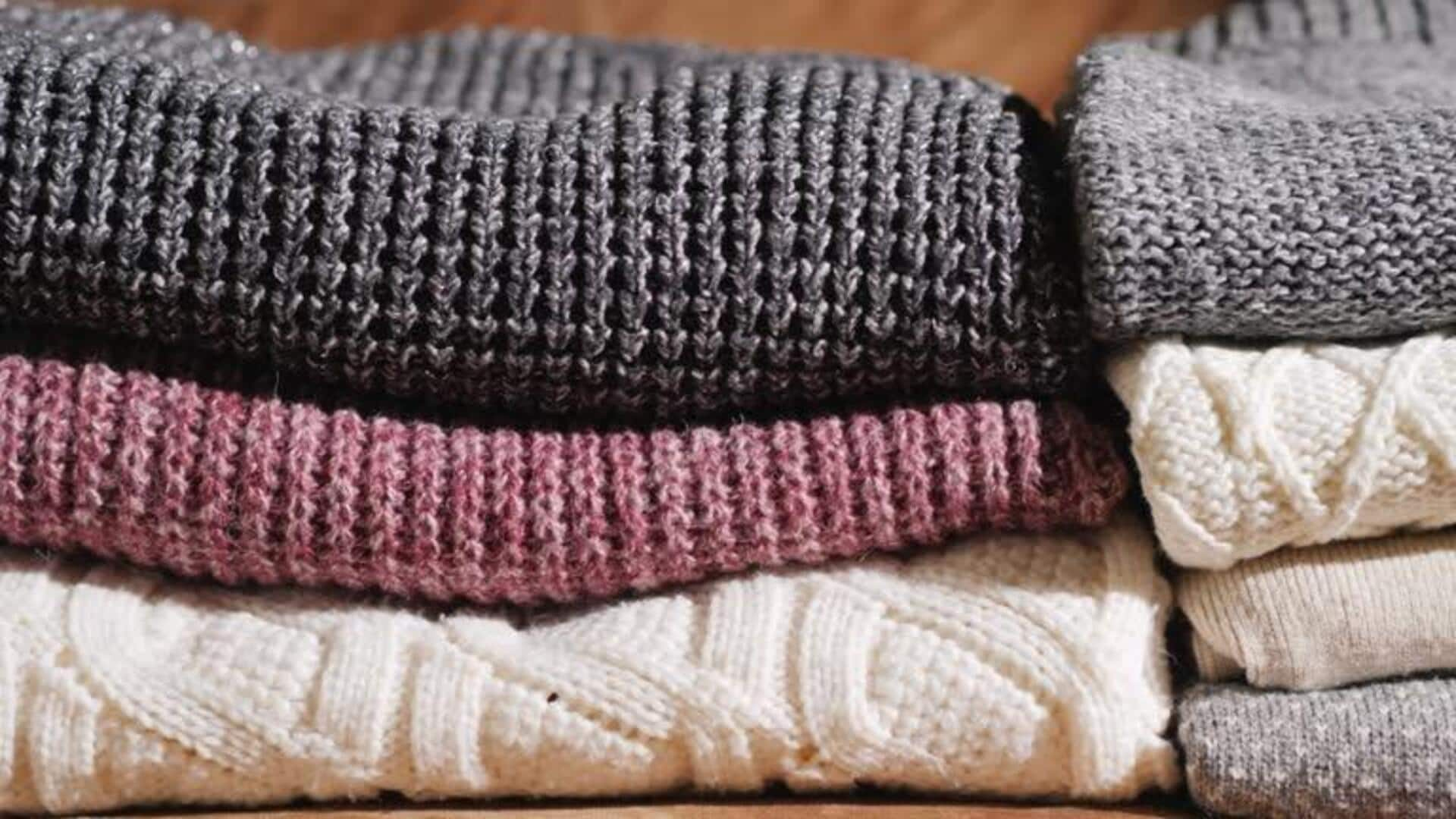
5 sustainable wools for your winter wardrobe
What's the story
As winter approaches, many of us are looking for warm and eco-friendly options to update our wardrobe. Sustainable wools provide a perfect combination of warmth, durability, and environmental consciousness. Sourced from ethical farming practices, these materials are not only good for the environment but also provide comfort and style. Here are five sustainable wools that can make your winter wardrobe more eco-friendly.
#1
Merino wool: A versatile choice
Merino wool is famous for its softness and versatility. Sourced from Merino sheep, this wool is breathable and moisture-wicking, making it perfect for layering in winter. It regulates body temperature well, so you can wear it in different weather conditions. Merino wool is also naturally odor-resistant, which means you can wear it multiple times before washing it. This reduces water consumption and extends the life of the garment.
#2
Alpaca wool: Lightweight warmth
Alpaca wool is known for being lightweight yet extremely warm. Sourced from alpacas, this wool has a silky texture that feels soft against the skin. Alpaca fibers are hollow, which provides excellent insulation without adding bulk. This makes alpaca wool perfect for sweaters, scarves, and hats that you want to wear all day long without feeling weighed down.
#3
Organic wool: Chemical-free comfort
Organic wool is produced without the use of synthetic pesticides or fertilizers. This means healthier sheep and less harm to the environment. Organic farming practices promote biodiversity and soil health, while producing high-quality fibers for clothing items like sweaters or blankets. Organic wool is just as warm as conventional options, but with added peace of mind knowing it's been produced sustainably.
#4
Cashmere: Luxurious sustainability
Cashmere comes from cashmere goats and is prized for its luxurious softness and warmth. Though traditionally expensive due to limited supply, sustainable cashmere initiatives are working to improve animal welfare and environmental impact. They promote responsible herding practices and land management techniques. These ensure that cashmere production does not contribute to desertification or overgrazing problems often associated with traditional methods.
#5
Shetland wool: Durable heritage fiber
Shetland wool comes from the Shetland Islands' hardy sheep breeds. These sheep endure harsh climates, producing durable yet breathable fibers. These fibers are perfect for outdoor activities in colder months. They are also ideal for everyday wear, thanks to their resilience. This resilience makes them last longer than other types of yarns available today.